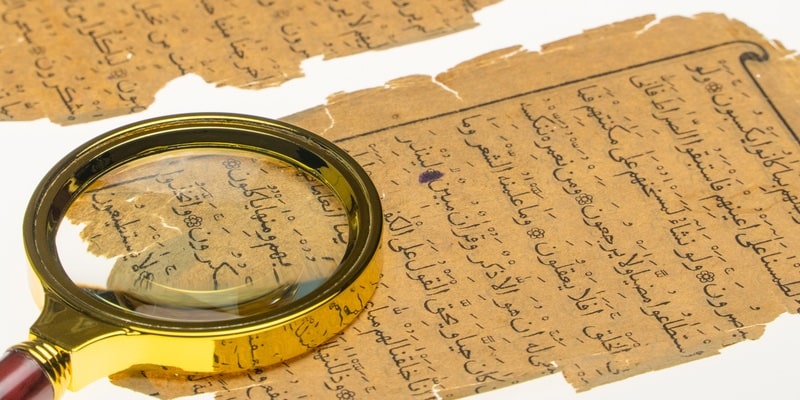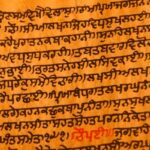We explain what philology is, what its branches are and what it is for. In addition, we tell you what philologists work on.

What is philology?
Philology It is the discipline that studies written texts as an access route to the language and culture of their authors. Its purpose is the understanding, reconstruction and interpretation of texts, especially literary ones, to try to recompose their original message and context.
The term philology It is of Greek origin, and is composed by the voices philos (“lover” or “friend”) and logos (“word” or “treaty”), so it can be understood as the love or devotion for written words. It is a term of classical origin, which was used at the time of the Library of Alexandria (around the 3rd century BC) to designate scholars of writing and the arts.
In fact, the first philologists were sophists and hermeneutics, such as Aristophanes of Byzantium (c. 257 – c.180 BC) and Aristarchus of Samothrace (c. 217 – c.145 BC), who dedicated themselves to the collection, correction, interpretation and reproduction of classical texts by Homer and other ancient Greek poets. For this they studied not only the grammar and rhetoric of their language, but also the history, geography, numismatics and bibliography of the time.
However, Modern philology was born in the 18th century thanks to Friedrich August von Wolf (1759-1824), although a good part of his areas of study were assimilated by the nascent linguistics, that is, the study of verbal language, which emerged in the 19th century. To such an extent that today both disciplines are considered different expressions of the same field of study: philology inscribed in the humanities and linguistics inscribed in the social sciences.
Philology professionals are called philologists.
What is philology for?
The goal of philology is the study of language and its written manifestations, in the light of history and culture. This is put into practice through three key areas of interest:
- The comparison between languages and literatures. It consists of the comparison and comparative analysis of two or more linguistic and literary traditions, with the purpose of finding revealing similarities (with respect to the history of the language) or eloquent differences (with respect to cultural diversity).
- The reconstruction of ancient texts. It consists of searching for the meaning and original form of the texts studied, comparing versions and tracing the history of each text. This may also include determining true authorship or original dates.
- Critical editing of texts. It consists of the review and study of classic texts and the production of critical support, that is, of useful studies for a better and more complete reading, understanding and interpretation of the texts.
What do philologists work on?
Philologists can work in a wide variety of jobs, ranging from academic and research to practical and commercial. Some of these jobs are:
- Editor, proofreader or editorial reader. Given his knowledge of the language and writing, the philologist can dedicate himself to publishing jobs, that is, to the commercial production of books, magazines and other similar texts.
- Literary critic, reviewer or researcher. In the study of literature, both classical and contemporary, critics are in charge of organizing the set of texts, finding similarities and contrasts, proposing interpretations and founding lines of research. Similarly, reviewers propose readings and opinions of the most recent texts, to guide potential consumers.
- Speech consultant and/or copywriter. Whether in the field of politics or advertising, written communications and speech formation enter the realm of rhetoric and poetic expression, fields in which a philologist can provide specialized criteria and suggest new ideas.
- Language and literature teacher. The teaching of language and literary expression is also within the professional fields of the philologist, since he is an expert in the history of literature and its correlation in culture.
Branches of philology
Traditionally, philology is classified into a classic aspect (classical philology), dedicated to the study of ancient texts of almost universal value, and a contemporary aspect which studies modern texts, distinguishing them according to their language and literary tradition (English philology, Hispanic philology, Germanic philology, among others).
From another point of view, it is possible to distinguish between two approaches to the written text and language within philological studies:
- The linguistic perspective which focuses on the study of verbal language: its history, its logic, its tendencies and structure.
- The literary perspective which focuses on the study of literary manifestations: their history, their interpretation, their authorship and their eventual comparisons.
Differences between philology and linguistics
In many ways, the fields of study of philology and linguistics are similar: Both disciplines focus on verbal language and its manifestations and they understand it as a fundamental aspect of human expression. However, the approach of each discipline is different, since linguistics does so from the social sciences and philology does so from the humanities or human sciences.
The differences between both approaches can be summarized as follows:
| Linguistics | Philology |
|---|---|
| Addresses verbal language from the social sciences, that is, using the scientific method. | It addresses verbal language from the humanities, that is, using context and interpretation. |
| It focuses on the understanding of the language, whether oral or written. | It focuses on the interpretation of written texts, as manifestations of the language. |
| It focuses on the study of language as a system. | Gives importance to historical, authorial and cultural aspects. |
However, There is much debate regarding this distinction since many academics consider it unnecessary and artificial.
Differences between philology and hermeneutics
Hermeneutics, understood as the science of interpretation has many points in common with philology, since in both cases the object of study is written texts, especially ancient ones, whether literary or philosophical.
However, hermeneutics It is a philosophical discipline, interested in the semiological that is, for the meaning and meaning of the texts themselves, and not as a way to recompose the author's thoughts or the cultural trends of his time, as occurs with philological interpretations.
On the other hand, hermeneutics studies written texts as a vehicle of thought and understands verbal language as a mere system of representation of ideas. Philology, on the other hand, makes verbal language the great protagonist of its analyzes and conclusions.
Continue with: Branches of science
References
- Online Spanish Etymological Dictionary. (sf). “Etymology of Philology”. http://etimologias.dechile.net/
- Oroz, R. (2015). Philology. Chilean Journal of Humanities, (3), 53–78.
- Royal Spanish Academy. (2022). language dictionary. “Philology”. https://dle.rae.es/
- The Encyclopaedia Britannica. (sf). “Philology”. https://www.britannica.com/





